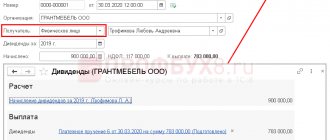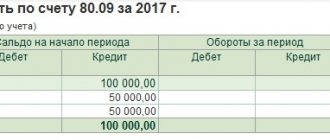What it is?
Insurance payments under compulsory motor liability insurance are the money received by the owner of a car who was injured in an accident through no fault of his own, as compensation necessary to pay for repairs or the purchase of a new car in the event of its complete loss.
In this case, payments are made at the expense of the insurance company of the person responsible for the accident, since the compulsory motor liability insurance policy does not provide for the insurance of one’s own car or even someone else’s, but the liability of the policy owner to other road users, which may arise due to his incorrect actions that resulted in an accident.
Features of taxation
To figure out whether insurance payments are taxable, let’s first determine what cases and features there may be.
- Firstly, legislation in the field of tax legal relations generally provides for two types of taxpayers:
- individuals, that is, you and me;
- legal entities, which are enterprises.
- Secondly, given that insurance compensation, when received by us, increases our available capital, they are recognized as income of an individual or legal entity.
- Thirdly, an MTPL agreement with an insurer can be concluded by both an individual and an enterprise with vehicles on its balance sheet. Accordingly, insurance payments can be received by both individuals and legal entities, which are recognized as income and serve as the reason for the emergence of an object of taxation.
This means that payers can be both individuals and legal entities. Therefore, the type of tax depends on the category of the subject. And tax can only be levied on the object of taxation for which is calculated based on the amount of income.
However, the fact that there is income and an object of taxation does not mean that tax must be paid in any case, due to the fact that there are many preferences and not all income is ultimately taxable.
For citizens
Individuals pay income tax (NDFL), the procedure for calculation and payment of which is regulated by Chapter 23 of the Tax Code of Russia. Thus, the code states that:
- insurance payments are included in income (Article 208);
- These compensations are not subject to taxation as payments under compulsory insurance contracts (Article 213).
Thus, individuals do not have to pay personal income tax on insurance payments under compulsory motor liability insurance.
Individual entrepreneurs are not legal entities, so they are subject to the same rules that apply to individuals. Consequently, they also do not transfer personal income tax on such income.
For legal entities
Legal entities are subject to income tax, the essence of which is that the object of taxation is defined as the difference between income and expenses. The provisions on the procedure for imposing this tax are enshrined in Chapter 25 of the Tax Code of the Russian Federation. In particular, it was established that:
- non-operating income includes amounts of compensation for losses and damages (Article 250);
- Article 251 specifies an exhaustive list of income not taken into account when determining the tax base, which does not include amounts of compensation for damage;
- Losses from accidents and emergencies are considered non-operating expenses (Article 265).
Thus, insurance payments for compulsory motor liability insurance are included in the income of the enterprise, and expenses for eliminating the consequences of damage to a corporate vehicle are included in the expenses.
Considering that only the difference between income and expenses is subject to income tax, then:
- if the losses are greater than or equal to the compensation received, no income tax will be charged;
- if the losses turn out to be less than the compensation, then only the part of the insurance payment that exceeds the value of the losses received will be taxed.
What income is taken into account under the simplified tax system?
The general rules for recognizing income under “simplified taxation” (regardless of the chosen object of taxation) are enshrined in Article 346.15 of the Tax Code of the Russian Federation. Paragraph 1 of this article determines that the tax base for both the object “income” and the object “income minus expenses” is formed by amounts that qualify as taxable income for profit tax purposes. We are talking about three types of income:
- from the sale of property, including finished products and goods, as well as works, services, property rights, that is, receipts determined by Article 249 of the Tax Code of the Russian Federation;
— non-sales — not directly related to sales, defined by Article 250 of the Tax Code of the Russian Federation;
- gratuitous - received without the need to make a counter transfer of tangible or intangible assets.
The income from business activities includes the above-mentioned receipts both in cash and in kind. In this case, any income is determined on the basis of:
— documents, including primary ones, confirming the amounts received by the taxpayer;
— tax accounting data, that is, the Book of Income and Expenses according to the form from the order of the Ministry of Finance of Russia dated October 22, 2012 No. 135n.
Is it income?
Regardless of the purpose and for what reason the funds are received, this is an increase in economic benefits, and therefore is taken into account as income, except in cases expressly provided for in legislative acts. And insurance payments were no exception:
- on the basis of Article 208 of the Tax Code of the Russian Federation, they are recognized as income for tax purposes by the personal income tax;
- according to Article 250 of the Tax Code of the Russian Federation, they also constitute income for the purposes of corporate income tax.
However, please note that not all income is subject to taxes.
introduced into the Russian Federation on January 1. 1992. Canceled as of Jan. 1. 1994. Payers of tax on income from insurance activities carried out on the basis of a license were enterprises, institutions, organizations recognized as legal entities under the legislation of the Russian Federation, including enterprises with foreign. investments, as well as companies, firms, any other organizations formed in accordance with foreign legislation. states that carried out insurance activities in the Russian Federation through permanent representative offices in accordance with the established procedure. The object of taxation is income from insurance activities, reduced by the amount of costs included in the cost of insurance services (without taking into account the costs of paying full-time employees). Income from insurance activities included: insurance payments under insurance and reinsurance contracts; reinsurance commissions; share of reinsurers in paid insurance amounts and insurance compensations; the amount of return of special insurance reserves of the previous year; other income related to insurance activities (including income from investing temporarily free funds and placing them in bank accounts). Income received by an insurance organization in foreign countries. currency, were subject to taxation along with income from insurance activities received in rubles (by converting into rubles at the rate of the Central Bank of the Russian Federation in effect on the day the income was received). Insurance organizations that received income from other activities paid tax from this activity in the manner established by laws on taxes on profits and income of enterprises, as well as other legislative acts on taxes. Tax on income from shares, bonds and other securities owned by an insurance organization, as well as from equity participation in other enterprises, was levied at the source of payment of this income. For tax purposes, income from insurance activities (determined in accordance with the above procedure) was reduced by the following amount. expenses: paid insurance amounts and insurance compensations; commissions paid to intermediaries (insurance agents, insurance brokers) for insurance and reinsurance operations; insurance payments transferred to reinsurance; return to reinsurers their share of special insurance reserves of the previous year; deductions from insurance payments (premiums) in special insurance funds and reserves formed in accordance with the law. acts; payments made to the state. social off-budget funds, as well as other obligatory payments; amounts due for payment to the budget in the form of taxes (property tax of an insurance organization, land tax, tax on highway users, tax on vehicle owners and tax on the acquisition of vehicles); depreciation charges for the complete restoration of fixed assets accrued during the taxable period according to the standards approved by the Government of the Russian Federation; the amount of depreciation of intangible assets, accrued according to the norms calculated by the taxpayer based on the original cost and their useful life, but not more than the period of activity of the payer (the depreciation rate of intangible assets, the useful life of which could not be determined, was set for 10 years , but not more than the period of activity of the insurance organization); expenses for the lease of fixed assets in the amount of depreciation. deductions for their complete restoration, and intangible assets - in the amount of accrued depreciation; other expenses related to the specifics of insurance activities and included in the cost of insurance services (except for wage costs) in accordance with the law. acts on taxation of profits (income) of enterprises. When determining the tax base of insurance organizations that received income from other activities, the allocation of expenses to insurance activities was based on the share of income from this type of activity in the total income of insurance organizations. The tax base was reduced by the following amounts: expenses incurred in accordance with the standards approved by local governments for the maintenance of housing and socio-cultural facilities on the balance sheet of insurance organizations (health care facilities, homes for the elderly and disabled, preschool institutions, children's recreation camps, sports facilities , educational institutions, etc.), as well as the costs of insurance organizations for these purposes with their shared participation in the maintenance of these objects (within the limits of the norms approved by local governments in the territories of which the specified objects and institutions were located); contributions aimed at charitable purposes (in particular, environmental, health, educational and other funds and public associations, public organizations of the disabled, homes for the elderly and disabled, religious associations, as well as enterprises, institutions and organizations of culture and education , health care, social security, physical education and sports) within 1% of taxable income. Funds, enterprises, institutions and organizations - recipients of such funds - at the end of the reporting year were required to submit to the tax authority at their location a report on the amounts received and their expenditure (amounts used for other purposes were withdrawn to the federal budget); costs for technical re-equipment, as well as for the construction and reconstruction of social facilities. infrastructure (the benefit was provided subject to full use of the amounts of accrued depreciation (amortization) as of the last reporting date). For insurance organizations that received a loss in the previous year (according to the annual accounting report), part of the income aimed at covering it was exempt from paying tax over the next 5 years (subject to the full use of reserve funds and other similar funds for these purposes). purpose of funds, the creation of which was provided for by law). Tax benefits should not have reduced the actual amount of tax accrued without taking into account benefits by more than 50%. Income received by insurance organizations from investing temporarily available funds for long-term insurance was reduced by the amount calculated for the entire volume of the reserve at the disposal of the insurance organization, at the percentage provided for in the structure of the tariff rate. For insurance organizations that also had income from other activities, the assignment of benefits to insurance activities was based on the specification. weight of income from insurance activities in total income. The basic tax rate was 25%. The income tax rates of an insurance organization were halved if at least 50% of its total employees were disabled or disabled and/or pensioners were at least 70%. The amount of tax was determined by the insurance organization independently on the basis of its financial statements and was paid in advance on a monthly basis. Income tax was credited to the federal budget. Excess amounts of tax paid were counted against regular payments or returned to the insurance organization within 10 days from the date of receipt of its written application. The insurance organization submitted to the tax authority at its location calculations of the amount of income tax on forms approved by the State Tax Service of the Russian Federation, as well as accounting reports and balance sheets. The amount of income received outside of Russia was included in the total amount of income subject to taxation in Russia and was taken into account when determining the amount of tax. The amount of tax on the income of an insurance organization received in the territories of these states paid outside of Russia in accordance with the laws of other states was counted when the insurance organization paid income tax in Russia. In this case, the amount of the credited amount could not exceed the amount of income tax payable in Russia on income received outside its borders. From January 1 2002 regulated by Sec. 25 “Organizational profit tax” of the Tax Code of the Russian Federation (Articles 254–269, 275, 293, 294)
Procedure for organizations
Business entities do not always calculate income tax on amounts received as compensation under MTPL agreements. It is not the full amount of payments that is taxed, but only the difference between the amount of the insurance payment and the actual costs of restoring the car or purchasing a new one in the event of its complete loss.
The tax rate is set at 20%. For example, if:
- the amount of insurance compensation under compulsory motor liability insurance was 50 thousand rubles;
- and the actual costs of repairing the car amounted to 45 thousand rubles;
- then the object of taxation for income tax will be the difference in the amount of 5 thousand rubles;
- and the tax payment will be 1 thousand rubles.
Tax on insurance payments must be paid in the same manner as when receiving other types of income. The moment of payment depends on which method is used to recognize income and expenses:
- with the accrual method, it does not matter when the funds were actually received and when the costs of repairing the machine were incurred. They must be recognized at the moment in which they occurred. Therefore, the tax should be transferred to the budget immediately without waiting for the money to be received;
- with the cash method, you should pay only after the insurance payment is received into the company’s account.
Also, when calculating and paying the mandatory payment in question, you should act in accordance with the rules established by Article 286 of the Tax Code of the Russian Federation. Thus, income tax is paid by transferring monthly advance payments, calculated based on taxable profit and rate.
Insurance compensation is income
To answer the question of whether insurance compensation received is considered income under the simplified tax system, the Russian Ministry of Finance needs to qualify such receipt as one of the types of taxable or non-taxable income mentioned above. The position of regulatory agencies on this issue was formed back in 2005 and has not changed since then.
In the basic document on this issue - in letter dated November 15, 2005 No. 22-2-14 / [email protected] - the Federal Tax Service of Russia expressed the opinion that the amount of insurance compensation received by the taxpayer, in its essence, represents compensation for damage caused to the property of the organization or individual entrepreneur. This means that such income should be included in taxable income under “simplified taxation” and considered as non-operating income in the form of amounts of compensation for losses or damages specified in paragraph 3 of Article 250 of the Tax Code of the Russian Federation.
A similar opinion was expressed by the Federal Tax Service of the Russian Federation for Moscow - in a letter dated December 1, 2005 No. 18-11/3/88107. And the Ministry of Finance of Russia, in letter dated 05/04/2009 No. 03-11-06/2/78, added that Article 251 of the Tax Code of the Russian Federation does not provide for exemption from taxation of income in the form of insurance compensation received by taxpayers from an insurance organization.




